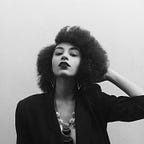10 legendary actresses from worldwide cinema
Talent, beauty and intensity that overcome boundaries. Meet 10 legendary actresses of the cinemas from all over the world.
United States — Katharine Hepburn
Elected by the American Film Institute as the greatest female star of all time, Katharine Hepburn is the actress with most Oscar prizes in history — Morning Glory (1933), Guess Who’s Coming to Dinner (1968), The Lion in Winter (1969) and On Golden Pond (1981) –, and collects other important awards like Emmy, BAFTA and Golden Bear. During her long career, which overcame six decades, the actress became known for playing characters who embody the transformation of woman’s role.
France — Catherine Deneuve
Eternal beauty icon, Catherine Deneuve became known for her frigid, mysterious damsels in movies like Repulsion (1965), by Roman Polanski, and Belle de Jour (1967), by Luís Buñuel. The actress made films alongside consecrated filmmakers like Jacques Demy (Les parapluies de Cherbourg), François Truffaut (Le dernier metro), Tony Scott (The Hunger), Lars von Trier (Dancing in the dark) and Manoel de Oliveira (Um Filme Falado). Deneuve was four-time nominated to Caesar Award, being winner twice — for Le dernier metro (1980) and Indochina (1992). For Indochina she was also nominated for Oscar.
Brazil — Fernanda Montenegro
Consecrated on stage and Brazilian television, Fernanda Montenegro made her debut on screens in A Falecida (1964), by Leon Hirszman, adaptation from the namesake Nelson Rodrigues’ play. With a six decades career, she was the first — and, still, the only — Latin American actress to be nominated to Oscar for Best Actress (Central Station) -, and the first Brazilian actress to win Emmy Award (Doce de Mãe). The movie Love in the Time of Cholera (2007), based on Gabriel García Márquez novel, marks her debut in Hollywood.
Germany — Marlene Dietrich
Josef von Sternberg’s muse, Marlene Dietrich began her career in the silent era. Elected by AFI as the tenth greatest female legend of cinema, the German actress ascended to the stardom in 1930 as the cabaret dancer Lola Lola in the classic The Blue Angel, which made her famous in the US. She was nominated for Oscar for Morocco (1930) and for the Golden Globe for Witness of Persecution (1957).
Japan — Setsuko Hara
Main actress of the Golden era of Japanese cinema, Setsuko Hara became famous in the West as the sweet Noriko in the three movies that compose the Noriko Trilogy — Late Spring (1949), Early Summer (1951) and Tokyo Story (1953) — , by filmmaker Yasujiro Ozu. She also starred in movies by other consecrated Japanese directors, like Akira Kurosawa (No Regrets for Our Youth and The Idiot) and Mikio Naruse (Repast). The actress, who never married, retired mysteriously from the screens in the early 1960’s, and lived anonymous until her death, in November 2015. In Japan, Setsuko receives the title of “Eternal Virgin”.
India — Sharmila Tagore
One of the most claimed Indian actresses of all time, Sharmila Tagore began her career at 13 years old in The World of Apu (1959), last movie from Apu Trilogy, Satyajit Ray’s masterpiece. Alongside Ray she made other important films like The Goddes (1960) and The Hero (1966). During 1960’s and 1970’s, Sharmila also established herself as actress of commercial films, becoming star of Bollywood musicals. The actress is holder of the greatest awards in Indian cinema, among them two National Filmfare Awards and two Filmfare Awards. In 2009 she was chosen as member of the International Competition’s Jury Members at Cannes Film Festival.
England — Vivien Leigh
Vivien Leigh was eternized as the fearless Scarlett O’Hara in …Gone With the Wind (1939) and, afterwards, as the tragic Blanche DuBois in A Streetcar Named Desire (1951), by which she won the Best Actress Oscar. Leigh and her husband Laurence Olivier (Hamlet) formed the most famous couple of Shakespearian actors of English stages. In cinema, they divided the scene in Fire Over England (1937), 21 Days Together (1940) and That Hamilton Woman (1941).
Egypt — Faten Hamama
In activity since six years old, Faten Hamama is also known as the “Shirley Temple of Egypt”. Hamama was the first wife of actor Omar Sharif (Lawrence of Arabia and Doctor Zhivago). Together they formed the most iconic couple of Arabian cinema and acted in six films — including The River of Love (1960), Egyptian adaptation from Tolstoy’s Anna Karenina. Hamama collected important awards of Arabian cinema and was nominated for Best Actress award in Cannes in 1951 for her performance in Lak Yawn Ya Zalem (translated in English as Your Day Will Come).
Sweden — Liv Ullmann
Ingmar Bergman’s muse, Liv Ullmann acted in ten films of the Swedish director, including the masterpieces Persona (1966), Cries and Whispers (1972) and Autumn Sonata (1978). Four-time nominated for Golden Globe, she won for The Immigrants (1971) and for the same movie was nominated for Oscar. The actress also stands out as filmmaker: Faithless (2000), her second movie as director, competed for the Palme d’Or in Cannes.
Italy — Anna Magnani
Considered the greatest Italian actress since Eleonora Duse, Anna Magnani began her career in theater and made her debut on screens in the early 1930’s. Intense and with a “volcanic” acting style, the actress worked alongside the most claimed filmmakers of her generation, like Vittorio de Sica (Teresa Venerdi), Roberto Rosselini (Roma città aperta), Federico Fellini (L’Amore), Luchino Visconti (Belissima), Jean Renoir (The Golden Coach) and Pier Paolo Pasolini (Mamma Roma). In Hollywood she starred in successful productions like The Rose Tatto (1955) — for which she won the Oscar for Best Actress — and The Fugitive Kind (1959).
Originally published at imperioretro.blogspot.com.
